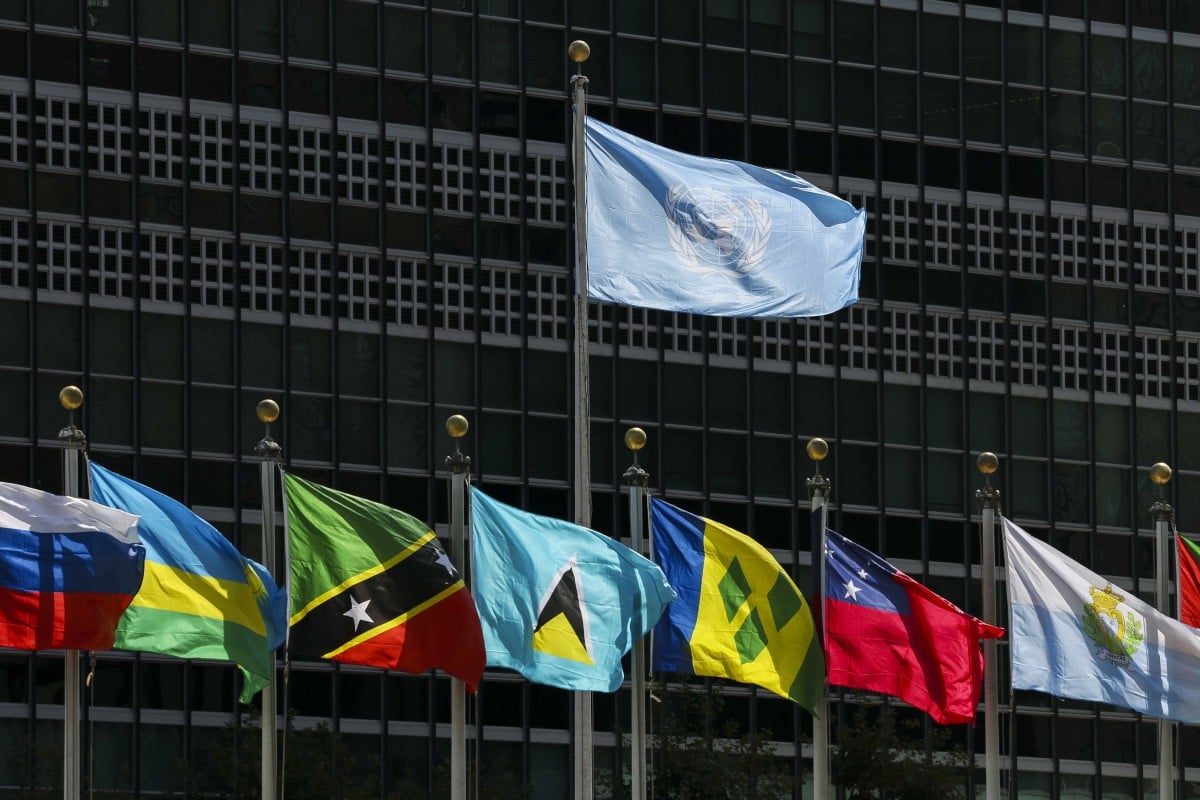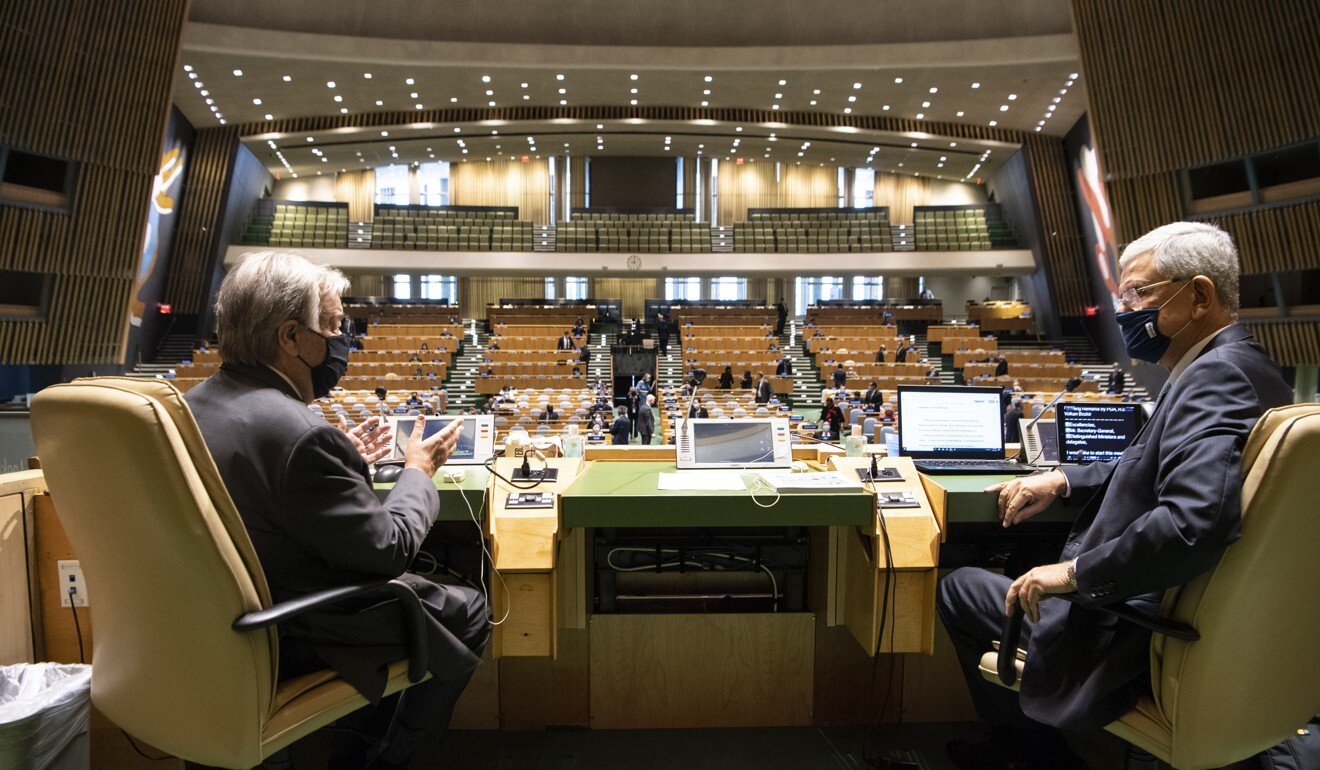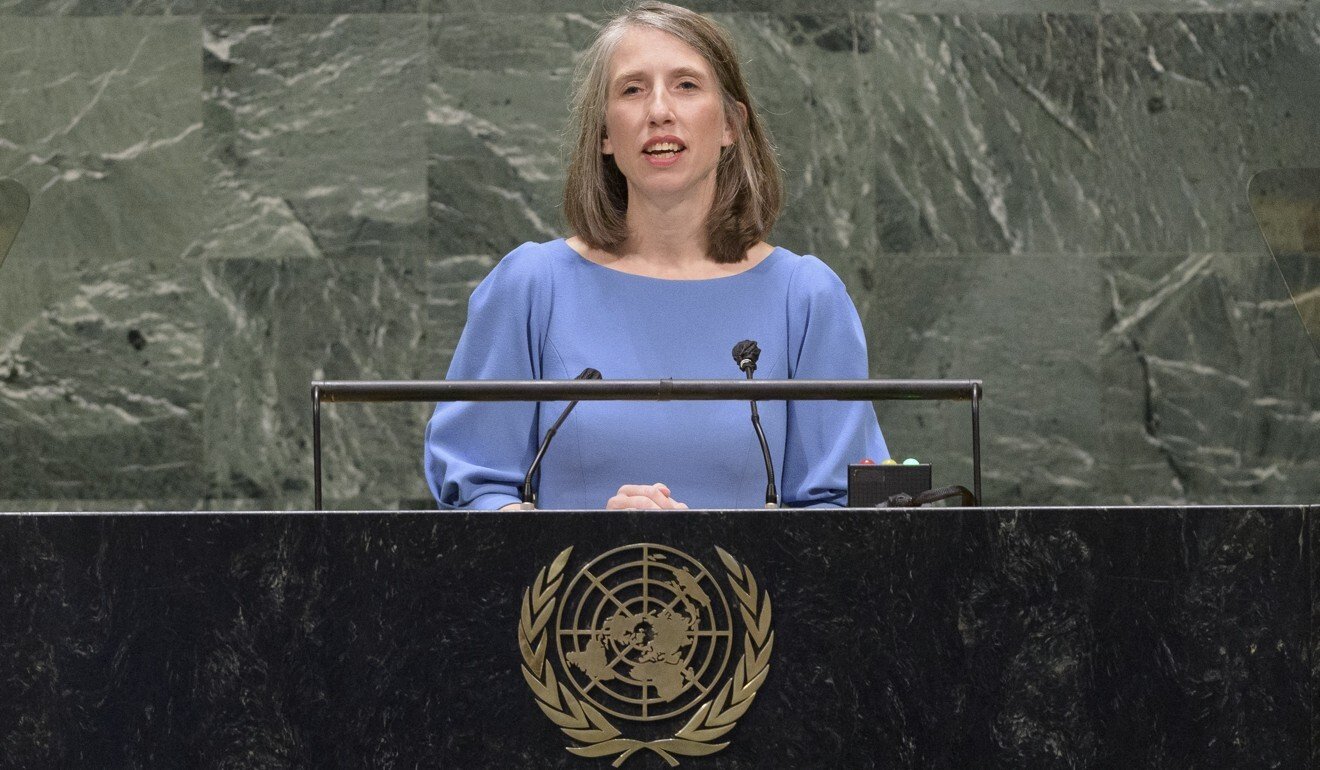
The United Nations on Monday marked its 75th anniversary with a largely online event, with US President Donald Trump failing to address the commemoration despite being expected to do so.
UN Secretary General Antonio Guterres called for more international cooperation in the face of global challenges in opening the event.
“Today we have a surplus of multilateral challenges and a deficit of multilateral solutions,” he said. “Climate calamity looms, biodiversity is collapsing, poverty is again rising, hatred is spreading, geopolitical tensions are escalating … the Covid-19 pandemic has laid bare the world's fragilities. We can only address them together.”
Speaking in person in the gilded General Assembly Hall in New York, the UN chief also praised the achievements of the world body, which was created in 1945 in the ashes of World War II.

“Never in modern history have we gone so many years without a military confrontation between the major powers,” Guterres said.
World leaders were addressing the high-level event via pre-recorded video speeches due to the coronavirus pandemic, a format that led UN expert Richard Gowan from the think tank Crisis Group to predict “a pretty gloomy birthday celebration for the UN”.
The United States, as the UN's host country, was the first speaker among member states. Although Trump was included on the UN's agenda, he unexpectedly did not address the event.
Instead, the US acting deputy representative to the UN spoke. Cherith Norman Chalet applauded the organisation, while also criticising its resistance to reform, lack of transparency and vulnerability to autocratic regimes.
“For the Trump administration, this anniversary is an important moment to mark the many successes of the United Nations, but to do so with clear eyes and a renewed determination to see this important body serve its intended purpose,” she said.
Trump, who has often disparaged the world body, is set to address the UN General Assembly's annual general debate via video when it kicks off on Tuesday.
As part of the anniversary event, member states adopted a declaration, agreed on in July, committing to a reinvigorated multilateralism.
Gowan described the declaration as a “perfectly fine but pretty anodyne statement of support for UN principles, weakened by the fact that the US did not want strong language on climate change”.

To coincide with the commemoration, held under the banner “the future we want, the UN we need,” the UN released the results of a global survey launched in January. More than 1 million people from around the world have answered questions about their hopes and fears for the future.
“Amid the current Covid-19 crisis, the immediate priority for most respondents is improved access to basic services – health care, safe water, sanitation and education – followed by greater international solidarity and increased support to those hardest hit,” the UN said.
Respondents also said they were concerned about the climate crisis and the destruction of the natural environment, and hoped for a greater respect for human rights, the resolution of conflicts and reduced poverty.
The UN's anniversary comes at a time when the world body faces questions over whether it is still fit for purpose in a more multipolar world, and whether it can muster consensus to deal with current conflicts and challenges, including the pandemic.







